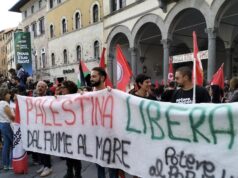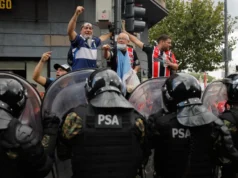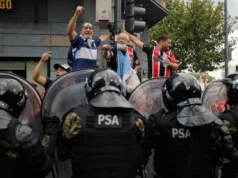The Vitória Agricultural Production Co-operative, belonging to Brazil’s Landless Rural Workers’ Movement (MST) has since 1993 practiced a model of production based on collectivism and diversification. By Passa Palavra
 The Vitória Agricultural Production Co-operative (COPAVI), in Paranacity in the north-east of Brazil’s Paraná state, was founded on 10th June 1993, but its story began in January of that year when several families occupied around 256 hectares and transformed a rugged area of sugar-cane-monoculture land, belonging to one sole owner, into an agro-industrial area with diverse production, securing an alternative – and decent conditions – for more than seventy people.
The Vitória Agricultural Production Co-operative (COPAVI), in Paranacity in the north-east of Brazil’s Paraná state, was founded on 10th June 1993, but its story began in January of that year when several families occupied around 256 hectares and transformed a rugged area of sugar-cane-monoculture land, belonging to one sole owner, into an agro-industrial area with diverse production, securing an alternative – and decent conditions – for more than seventy people.
COPAVI, according to the National Institute of Farming and Agrarian Reform (INCRA), is among the ten most successful holdings in the state. Its collective forms of ownership, production, and management, under the leadership of the Movimento dos Trabalhadores Rurais Sem Terra (Landless Rural Workers’ Movement; MST), are considered a model [1]. It remains symbolic of the landless workers’ struggle in Brazil.
The co-operative, its infrastructure, the houses and the produce on sale are not the property of any one individual, but of COPAVI affiliates; this being so, the co-operative and the goods it produces are the collective property of its members.  But not only is the land worked collectively, but everyone also has breakfast together and they lunch together on the farm’s cafeteria (they only have dinner as families). Also as regards pay: for a long time, calculation of hours worked has been central, so that everyone receives the same for time worked, no matter what job they do.
But not only is the land worked collectively, but everyone also has breakfast together and they lunch together on the farm’s cafeteria (they only have dinner as families). Also as regards pay: for a long time, calculation of hours worked has been central, so that everyone receives the same for time worked, no matter what job they do.
Recently the farmers have experimented with a method copied from a Spanish NGO in which different tokens are given for different activities, such as physical effort, mental labour, etc.; this system was tested for three months and extended three months further with the agreement of all the co-operative members.
After the canvas shacks used in the initial years of the encampment, and the cleaning-up of the whole area, the holding now boasts houses, a bakery, a study, a sugar-cane growth and distillery unit, a dairy, a stables, cabins, and an abbatoir, amongst other infrastructure.
Unlike agribusiness, which is based on the monoculture of large areas, destruction of the environment and human health via the intensive use of chemicals and the super-exploitation of workers, at COPAVI there is a different model of agricultural production based on agro-ecological systems as regards the environment, economic and technological development and distribution of income, and for the improvement of the quality of life in the holdings and of the population therein.
Indeed the food produced at COPAVI – from milk and yoghurt to green vegetables, sugar cane brandy and sugar – are free of chemical toxins and hormones, and are sold at a low price on the market, in despite of the co-operative’s near-monopoly on milk in the region.  In the words of COPAVI members, this is due to them producing goods not mainly in order to sell them, but rather so that workers and their families have access to good quality and healthy food at an accessible price.
In the words of COPAVI members, this is due to them producing goods not mainly in order to sell them, but rather so that workers and their families have access to good quality and healthy food at an accessible price.
COPAVI is not meant to be an island of “utopia” in a social ocean where private property, profit, competition and the commercialisation of everything is all-powerful. However, its contradictions, problems and limits, its model of co-operative family-run agro-industries is understood by the MST as a viable alternative for the concretisation of agrarian reform in Brazil, the management of enterprises in the countryside and the production of quality produce in large quantity and at low price for the whole population [2].
Notes
[1] Collective ownership does not exist in all MST holdings: in most cases private property persists. That said, we must consider that the co-operative also functions according to the demands of an enterprise – even if collectively managed – with the need to give profits and to be self-sustaining. However, talking with co-operativists, it is clear that the values and principles guiding them are not those of competition and profiteering.
[2] To read more on COPAVI-MST, read the article by Luiz Maklouf Carvalho in Revista Piauí: http://www.revistapiaui.com.br/edicao_21/artigo_648/O_modelo_Vitoria.aspx
For the account of the Political Science professor Antônio Ozaí on his visit to COPAVI-MST:
http://antonio-ozai.blogspot.com/2008/11/cooperativa-de-produo-agropecuria.html
And an Indymedia editorial on COPAVI-MST:
http://prod.midiaindependente.org/pt/blue/2008/11/433400.shtml
Translated by The Commune. Original at http://passapalavra.info/2009/03/1527.





